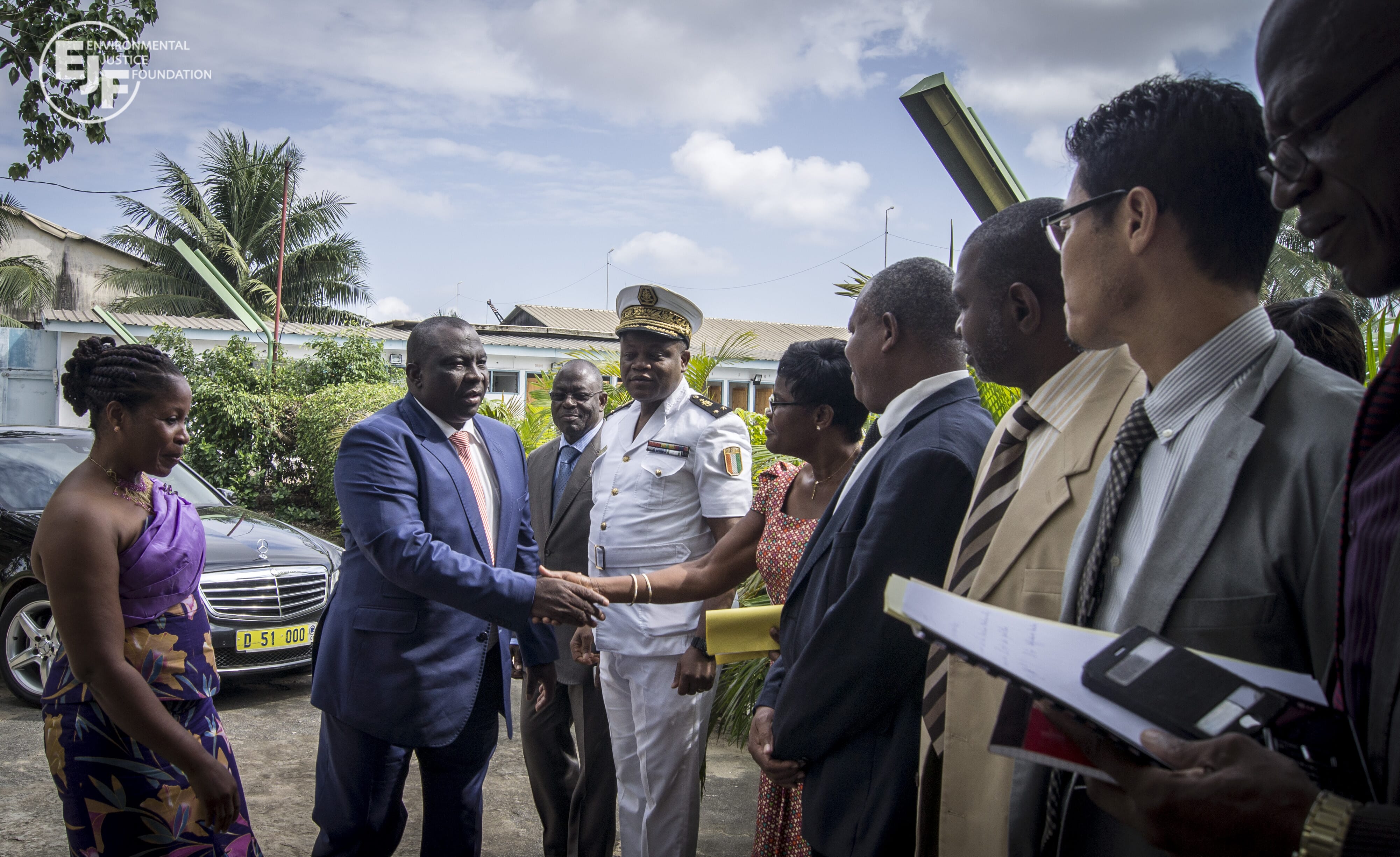After a short EJF film screening about the fisheries of Côte d'Ivoire, speeches were heard from high-profile stakeholders including the Minister of Animal Resources, Kobenan Kouassi Adjoumani, and the Head of the Artisanal Fishermen Cooperative, Michel Segui.
EJF presented its work in Côte d'Ivoire, which aims to identify IUU fishing activities at sea with the help of surveillance by local fishers and satellite vessel tracking. EJF presented details of the successes achieved through sharing the information gathered with the Government officials, Flag, Port and Market States in the region and internationally.

Global losses due to IUU fishing are estimated to be between $10 billion and $23.5 billion per year. West Africa is the region hardest hit by IUU or ‘pirate’ fishing, with an estimated 37 per cent of the catch in the region being IUU. By depleting fish stocks, IUU fishing severely compromises the food security and livelihoods of vulnerable coastal communities dependent on fish as their main source of protein and income.
West Africa is particularly susceptible due to a combination of a lack of control by the international flag States of industrial vessels (which very often come from East Asia, Europe and other faraway areas), a lack of effective port controls, weak monitoring of fishing by coastal States, and the absence of an effective Regional Fisheries Management Organisation (RFMO) for inshore fisheries. West Africa’s fish stocks are at grave risk, with 48 per cent of its assessed stocks fished at biologically unsustainable levels.
Following a recent civil war, Côte d'Ivoire has found it challenging to implement strong legal structures and strategies on fisheries, resources management and surveillance. Fish is a vital source of food and protein for the population, where each person consumes approximately 14 kg of fish each year. The majority of fishing activities are concentrated on a very narrow continental shelf which requires proper management to prevent the destruction of the marine environment, depletion of fish stocks and potential collapse of the fishing ground.
At present, Côte d'Ivoire relies heavily on imports to feed its population and this dependence on expensive fish from abroad will be exacerbated if marine resources are not urgently protected. The event hosted by EJF and the Directorate of Fisheries this week is an important step towards effective measures to curb IUU fishing activities which are detrimental to marine biodiversity, and the livelihoods and food security of coastal communities.
Commenting on the event, Steve Trent, Executive Director of EJF, said: “EJF most warmly welcomes the opportunity to work with the Directorate of Fisheries in Côte d’Ivoire to step up efforts to combat IUU fishing in West Africa. Our hope is that the event in Abidjan this week will highlight the need for urgent action to all stakeholders, who can join us in our collaborative work to secure truly sustainable, well-managed fisheries and with this the protection and effective conservation of marine biodiversity and food security.”




